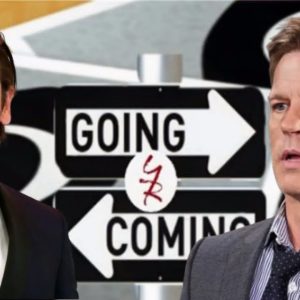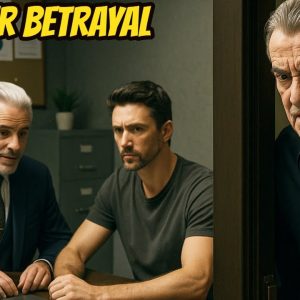A Haunting Past Resurfaces: Mariah Copeland’s Downward Spiral in Genoa City
In the twisting labyrinth of Genoa City drama, few characters have been as emotionally tormented, as fractured, or as quietly tragic as Mariah Copeland. Once a fiery, complex woman trying to outrun the traumas of her past, Mariah now finds herself consumed by a darkness she thought she had long buried. But in true The Young and the Restless fashion, the past doesn’t stay buried — it claws its way back with the voice of a stranger and the face of a ghost.
Mariah’s story has always danced on the edge of tragedy and redemption. Raised in chaos, manipulated by the infamous Ian Ward, and tormented by identity crises and abandonment, she found solace and purpose with Tessa and Sharon. But all of that stability is unraveling after one night of poor judgment — a night she can barely remember — comes back to shatter her fragile world.
It starts like a psychological thriller: Mariah wakes up alone, her memory fractured, the air thick with regret and a stranger’s cologne. The man she was with — older, a shadowy presence from a night drowned in alcohol and desperation — is gone. Or is he?
The terrifying reality begins to take shape. He isn’t just some man she met in a bar. He’s someone who knows her, someone with power, influence, and a chilling familiarity. A knock on the door — persistent, deliberate — plunges her into a state of dread. The voice that follows isn’t just recognizable; it’s menacing. “Mariah, we need to talk.” The same voice from that night, the same voice from her past.
This isn’t just a tale of infidelity. It’s a story of trauma revisited, of manipulation and control reaching out from the shadows of her former life. The clues point back to Ian Ward’s cult — a past Mariah thought she’d escaped but which now seems to be pulling her back in. The man could be a remnant of that world, someone planted or orchestrated by forces darker than she dares to believe.
But what truly makes this story a powder keg of emotional devastation is the psychological warfare Mariah is enduring. She is isolated. Sharon, her mother figure, and Tessa, her soulmate, have grown distant — not out of malice, but possibly out of fear or helplessness. In their absence, Mariah spirals deeper into a pit of self-loathing, fear, and confusion.
The internal conflict she faces is harrowing. It’s not just about remembering what happened; it’s about what it means. Why did she choose to be with a man so vastly different from anyone she’s ever loved? Why does the memory of his touch repulse her? And why, above all, does this mistake feel like a thread unraveling everything she’s built?

The age difference, the cult connection, and the faceless fear she feels all point to a deeper violation — emotional, psychological, perhaps even spiritual. This isn’t just a cheating scandal. It’s a collapse of identity. Mariah isn’t just afraid of losing Tessa. She’s afraid she has already lost herself.
And then there’s the looming threat: what if this man doesn’t just want to reconnect? What if he wants revenge? Control? What if he wants to pull Mariah back into the psychological prison of Ian Ward’s ideology? The speculation is rampant: could he be a new cult member sent to reclaim her? Or someone using her past as leverage?
As the whispers spread through Genoa City, names like Ian Ward and Ben “Stitch” Rayburn resurface — men with dark pasts and unfinished business. But even if it isn’t them directly, their influence lingers like a curse over Mariah’s life. This unknown man may be worse — not a monster from the shadows, but a calculated predator who knows how to weaponize trauma.
If The Young and the Restless is building toward a new psychological thriller arc, Mariah Copeland is its tragic heroine — haunted, hunted, and heartbreakingly human. And the stakes aren’t just her relationship with Tessa. They’re her sanity, her sense of self, and possibly her life.
Will she come clean and risk losing everything for the sake of truth? Or will silence, shame, and fear tighten around her until she breaks? One thing is clear: this isn’t just about a one-night stand. It’s about the ripple effects of trauma, the unresolved wounds of the past, and how easily we can become prisoners of our own secrets.
As viewers, we’re not just watching a soap opera. We’re witnessing a character fight for her life — not with fists or weapons, but with the truth. And that may be the hardest battle of all.





